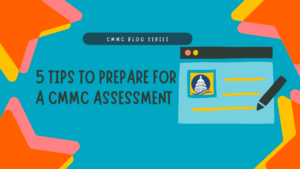Shielding Your Small Business: Top 10 Cybersecurity Challenges in 2023
By Heather Bennett
October 23, 2023
Small businesses are the backbone of economies worldwide, but they’re also increasingly becoming targets for cyberattacks. As the digital landscape evolves, so do the threats. In this blog, we’ll delve into the top 10 cybersecurity challenges of 2023 and explore what small businesses can do to stay protected.
1. Ransomware Attacks

Ransomware attacks are skyrocketing, and even small businesses are not immune. Cybercriminals are targeting them for quick profits. These malicious actors encrypt valuable data and demand hefty ransoms in cryptocurrencies.
In 2023, these attacks have reached new levels of sophistication, making organizations need to invest in robust backup systems and employee training to thwart potential breaches. As a small business owner, ensure you utilize reliable backup systems and educate your team about the dangers of suspicious emails and links.
2. Supply Chain Attacks

Cybercriminals exploit supply chain vulnerabilities by infiltrating trusted suppliers’ networks to compromise their ultimate targets. Securing the entire supply chain, from the source to the consumer, is crucial. Vigilance and robust cybersecurity measures are necessary to safeguard this intricate network.
Small businesses often rely on suppliers for goods and services. Not all suppliers have robust cybersecurity measures. It’s essential to assess the cybersecurity practices of your suppliers and take measures to secure your supply chain.
3. Phishing and Social Engineering

Phishing attacks are still pervasive, with attackers using increasingly sophisticated tactics to deceive individuals and employees. To combat this, organizations must prioritize cybersecurity awareness training and deploy advanced email filtering systems to detect and mitigate phishing attempts.
Small businesses must prioritize cybersecurity awareness training to help employees recognize and thwart phishing attempts. Implement advanced email filtering systems to add an extra layer of protection.
4. Nation-State Cyber Operations

State-sponsored cyberattacks continue to pose a significant threat. Nations engage in cyber espionage, data theft, and even disruptive operations against other countries. Nations and organizations must bolster their defenses and collaborate on international cybersecurity efforts.
Small businesses might not see themselves as targets of nation-state actors, but they can still be caught in the crossfire in the interconnected world of cyberattacks. Ensuring strong security measures and regularly updating your systems is crucial.
5. IoT and Critical Infrastructure Vulnerabilities

The vulnerabilities in Internet of Things (IoT) devices and critical infrastructure systems are a source of concern, as large-scale attacks could disrupt essential services. Improving IoT security standards and regularly updating critical infrastructure systems are necessary to mitigate these risks.
Small businesses relying on IoT devices or vulnerable critical infrastructure should regularly update and secure these systems to prevent disruptions. Additionally, invest in robust cybersecurity for these technologies.
6. Zero-Day Exploits

Zero-day vulnerabilities are still a problem in 2023, as attackers exploit these vulnerabilities before patches become available.
Small businesses are just as vulnerable to zero-day exploits as large corporations. Stay vigilant, update your software regularly, and consider using intrusion detection systems to identify potential threats.
7. Data Breaches

Data breaches and leaks of personal and sensitive information persist, leading to identity theft and other cybercrimes.
Data breaches can have catastrophic consequences for small businesses, damaging reputations and causing financial loss. Implement data protection measures, like encryption and access controls, to secure sensitive information.
8. Remote Work Challenges

The COVID-19 pandemic has accelerated the shift to remote work, creating new organizational challenges. With employees relying on potentially vulnerable home networks and personal devices, organizations must invest in secure remote access solutions and provide comprehensive training to maintain a secure remote work environment.
Many small businesses have adopted remote work due to the pandemic, as well as larger companies. Ensure your remote work infrastructure is secure and provide cybersecurity training to remote employees. Virtual private networks (VPNs) and multi-factor authentication (MFA) can add an extra layer of security.
9. AI and Machine Learning in Cyberattacks

Cybercriminals increasingly use artificial intelligence and machine learning for automated attacks, evasion techniques, and targeted exploits. Using AI for defense, in the form of AI-driven cybersecurity solutions, is crucial to stay ahead of cybercriminals.
Small businesses should consider investing in AI-driven cybersecurity solutions to protect against automated attacks and evasion techniques. These technologies can level the playing field. Staying updated on data protection laws and maintaining compliance is crucial and protects against automated attacks and evasion techniques.
10. Regulatory and Compliance Pressures

Organizations are facing increasing regulatory requirements to protect data and report breaches. Non-compliance can lead to severe penalties. Staying updated on evolving data protection laws and implementing robust compliance measures is crucial to navigate this complex landscape.
Small businesses often lack the resources for extensive legal teams, so staying updated on data protection laws and maintaining compliance is crucial. Ignoring these regulations can lead to substantial fines.
Organizations are facing increasing regulatory requirements to protect data and report breaches. Non-compliance can lead to severe penalties. Staying updated on evolving data protection laws and implementing robust compliance measures is crucial to navigate this complex landscape.
Small businesses often lack the resources for extensive legal teams, so staying updated on data protection laws and maintaining compliance is crucial. Ignoring these regulations can lead to substantial fines. You can find more information about cybersecurity for small businesses on the SBA website.
Your Small Business Cybersecurity Partner
Provincia Government Solutions, LLC is a Nashville-based HUBZone-certified security and risk assurance firm, specializing in government regulatory and compliance cybersecurity requirements. Our expertise encompasses a wide range of standards, including NIST, FISMA, CMMC, SCA, 800-171, TRICARE, MARS-E, and Zero Trust Architecture (ZTA) solutions.
Our client base comprises government agencies, contractors, and commercial organizations affiliated with government entities. Whether you require audit preparedness, compliance and assurance assessments, security consulting, or CMMC certification, we have the knowledge and experience to assist you.
For a no-cost consultation, please don’t hesitate to contact us at (615) 807-2822 or via email at info@provincia.io. We look forward to discussing your security needs and finding solutions tailored to your specific requirements.
Subscribe to our Blog!
Be The First
to Know
When New Blog Content is Published

Contact Information
-
P.O. Box 1685
Spring Hill, TN 37064
United States - +1 (615) 807-2822 | info@provincia.io
Social Networks
ABOUT US
Provincia Government Solutions is a SBA certified Small Business cybersecurity assurance firm and a CMMC Certified Third Party Assessment Organization (C3PAO). We were the first organization to become a C3PAO in the Middle Tennessee (Nashville) area and provide a full range of services including CMMC consulting and certification assessments. Our assessment team is trained in CMMC and other government assessment disciplines and we are experienced working with organizations of all sizes. Please reach out with any cybersecurity or CMMC related inquiries. We look forward to speaking with you!















